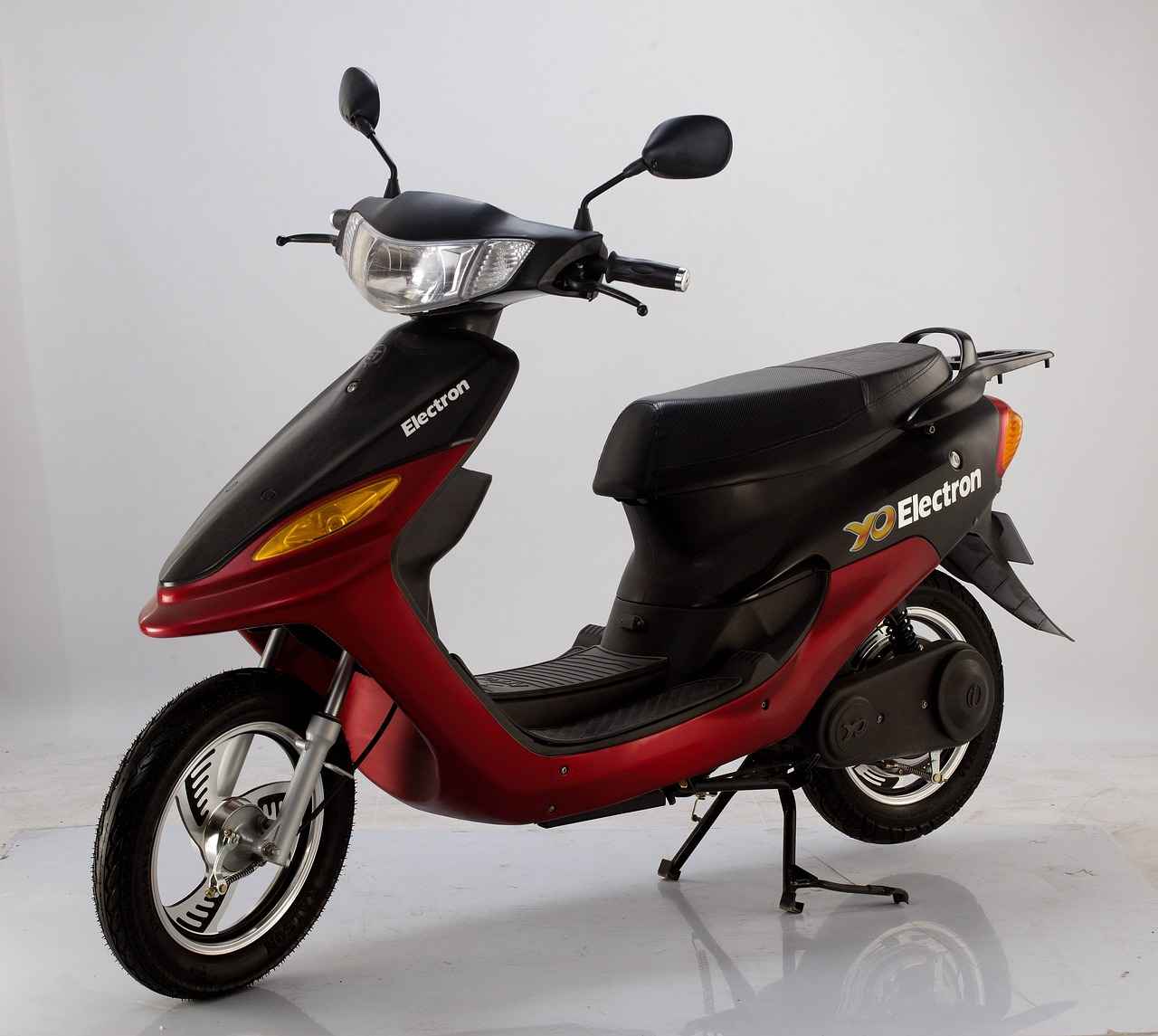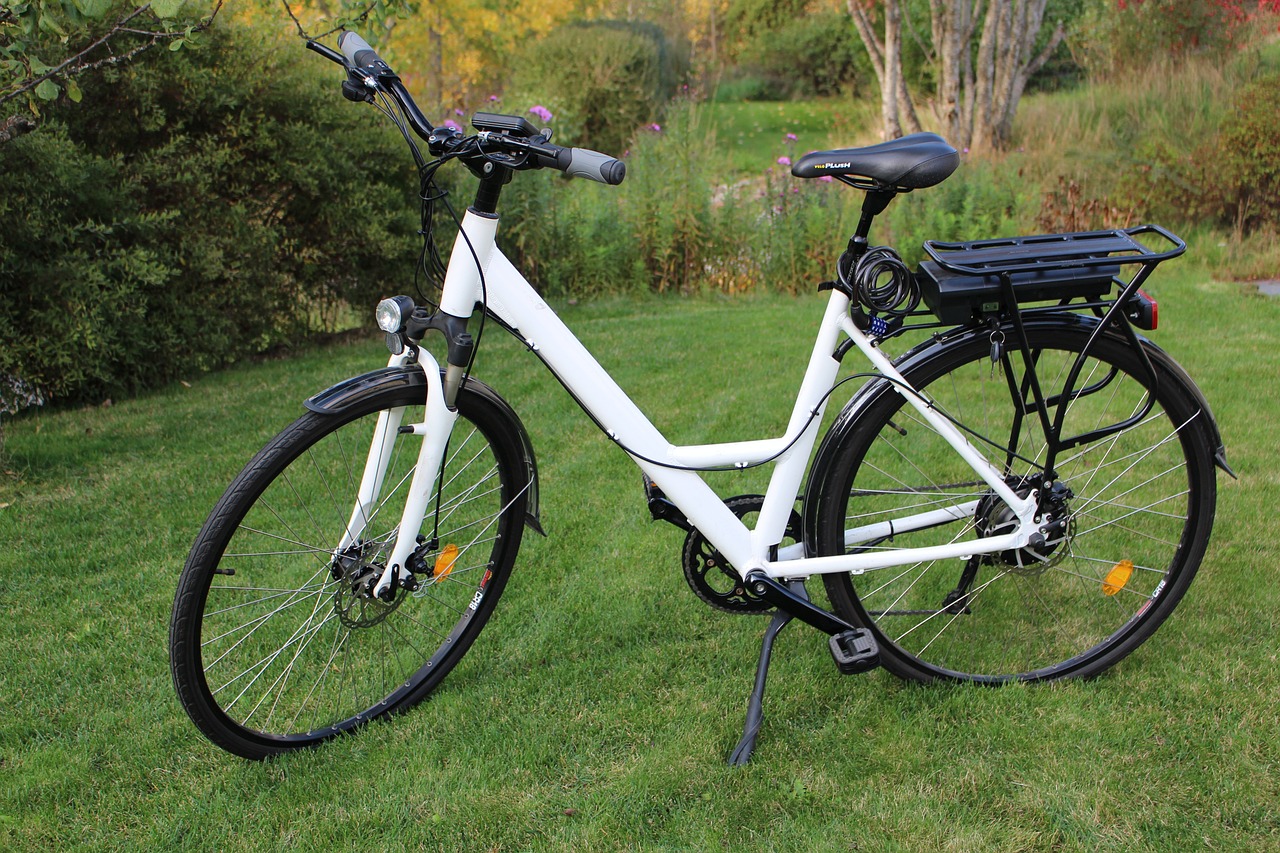This article delves into the numerous advantages that electric bikes offer to urban residents. As cities become increasingly congested, the need for efficient and sustainable transportation options has never been more critical. Electric bikes, or e-bikes, stand out as a practical solution, providing a range of benefits that cater to the modern commuter.
Understanding Electric Bikes
Electric bikes are equipped with an electric motor that assists with pedaling, making them an innovative blend of traditional cycling and modern technology. This assistance allows riders to travel longer distances with less effort, making commuting not only feasible but also enjoyable.
Benefits of Electric Bikes for Commuters
- Reduced Travel Time: E-bikes can navigate through traffic more efficiently, often allowing riders to reach their destinations faster than cars or public transport.
- Less Physical Exertion: The electric motor reduces the physical strain of cycling, making it accessible to a broader audience, including those who may not be regular cyclists.
- Cost-Effective Transportation: With no fuel costs and minimal maintenance, e-bikes can significantly lower transportation expenses.
Environmental Impact of Electric Bikes
One of the most significant advantages of e-bikes is their eco-friendliness. They produce zero emissions during operation, contributing to cleaner air and a smaller carbon footprint for city dwellers. By choosing an electric bike, individuals actively participate in reducing urban pollution.
Health Benefits of Riding an Electric Bike
Riding an electric bike promotes physical activity, enhancing cardiovascular health and overall fitness. The ability to cycle without excessive fatigue encourages more people to incorporate cycling into their daily routines, leading to healthier lifestyles.
Choosing the Right Electric Bike
When selecting an electric bike, consider factors such as battery life, motor power, and design. Understanding these features is crucial for making an informed decision that meets your commuting needs.
Conclusion: The Future of Urban Transportation
Electric bikes are becoming an integral part of urban transportation, providing a sustainable and efficient alternative for city residents. As urban areas continue to grow, investing in an electric bike not only benefits the individual but also contributes to a more sustainable future.

Understanding Electric Bikes
Electric bikes, commonly known as e-bikes, are revolutionizing the way we think about cycling and commuting. These innovative bicycles are equipped with an electric motor that provides assistance while pedaling, seamlessly blending the traditional cycling experience with modern technology. This unique combination not only makes riding more enjoyable but also offers a practical solution for urban transportation.
One of the key features of e-bikes is their ability to assist riders in overcoming various challenges associated with commuting in busy cities. For instance, the electric motor can help cyclists tackle steep hills or long distances without the need for excessive physical exertion. This means that even those who may not consider themselves athletic can enjoy the benefits of cycling.
Moreover, e-bikes come with adjustable levels of assistance, allowing riders to customize their experience according to their fitness levels and the terrain they are navigating. This flexibility makes them suitable for a wide range of users, from casual riders to serious commuters.
In addition to enhancing the cycling experience, e-bikes offer significant environmental benefits. They produce zero emissions during operation, contributing to cleaner air in urban areas. By choosing an electric bike over a conventional vehicle, riders are actively participating in the reduction of their carbon footprint and helping to combat climate change.
As e-bikes gain popularity, they are becoming an integral part of urban infrastructure. Many cities are investing in bike lanes and parking facilities specifically designed for e-bikes, further encouraging their use. This shift not only promotes healthier lifestyles but also supports sustainable urban development.
In conclusion, electric bikes are more than just a trend; they represent a significant advancement in urban transportation. With their ability to combine convenience, efficiency, and environmental responsibility, e-bikes are indeed a smart investment for anyone looking to navigate city life with ease.

Benefits of Electric Bikes for Commuters
Electric bikes, commonly known as e-bikes, have revolutionized the way urban commuters travel. With a blend of traditional cycling and modern technology, these bikes offer a plethora of advantages for those navigating bustling city streets. Below are some of the key benefits that make electric bikes an ideal choice for daily commuters:
- Reduced Travel Time: E-bikes allow riders to bypass congested traffic and reach their destinations faster. The electric motor provides an extra boost, enabling cyclists to maintain higher speeds without excessive effort.
- Less Physical Exertion: Unlike traditional bicycles, e-bikes require less physical strain, making them accessible to a wider range of individuals. This is particularly beneficial for those who may be intimidated by the prospect of cycling long distances.
- Efficient Navigation: E-bikes are easier to maneuver in tight spaces and crowded urban environments. Riders can effortlessly weave through traffic, making them a practical option for city dwellers.
- Cost-Effective Transportation: Investing in an electric bike can significantly reduce transportation expenses. With no fuel costs and minimal maintenance requirements, e-bikes provide a budget-friendly alternative to cars or public transport.
- Environmental Benefits: E-bikes produce zero emissions during operation, contributing to cleaner air and a healthier environment. By choosing an electric bike, commuters can reduce their carbon footprint and help combat climate change.
- Health Benefits: While e-bikes offer motor assistance, they still encourage physical activity. Regular riding can improve cardiovascular health and enhance overall fitness levels.
In conclusion, electric bikes present a multitude of benefits for commuters, from saving time and money to promoting a healthier lifestyle. As cities continue to grow and evolve, e-bikes will undoubtedly play a crucial role in shaping the future of urban transportation.
Cost Savings on Transportation
Investing in an electric bike is not just a trend; it is a smart financial decision for urban commuters. With rising transportation costs, e-bikes present a practical solution that can lead to substantial savings over time.
One of the most significant advantages of owning an electric bike is the elimination of fuel expenses. Unlike cars that require gasoline or diesel, e-bikes are powered by electricity, which is considerably cheaper. In fact, the cost to charge an electric bike is only a fraction of what one would spend on fuel for a car. This translates to considerable savings, especially for those commuting long distances regularly.
Moreover, the maintenance costs associated with electric bikes are significantly lower compared to traditional vehicles. E-bikes have fewer moving parts, which means there are fewer components that could potentially break down. Riders can save on oil changes, extensive repairs, and other routine maintenance that cars typically require. In essence, the long-term maintenance savings can be a compelling reason to switch to an e-bike.
Another factor to consider is parking fees. In urban environments, parking can be a costly and frustrating experience. E-bikes can be parked in smaller spaces or at designated bike racks, often for free. This not only saves money but also reduces the time spent searching for parking, allowing commuters to reach their destinations more efficiently.
Additionally, e-bikes encourage a more active lifestyle, which can lead to healthcare savings in the long run. Regular cycling can improve physical health, potentially lowering medical expenses associated with sedentary lifestyles.
In conclusion, investing in an electric bike is a financially savvy choice for city dwellers. The combination of reduced fuel and maintenance costs, along with savings on parking, makes e-bikes a cost-effective alternative to cars and public transportation. With the added benefit of promoting a healthier lifestyle, it’s clear that e-bikes are not just an investment in transportation, but an investment in a better future.
Lower Maintenance Costs
When considering modes of transportation, one of the most significant advantages of electric bikes is their . Unlike traditional vehicles that require regular oil changes, tire rotations, and complex mechanical repairs, electric bikes are designed with simplicity in mind. This simplicity translates to fewer moving parts, which inherently reduces the likelihood of mechanical failure.
For instance, electric bikes typically feature a hub motor or a mid-drive motor, both of which have fewer components compared to a gasoline engine. This means that riders can enjoy a more reliable and efficient mode of transport without the frequent trips to the mechanic that come with cars. Additionally, the absence of an internal combustion engine means no need for engine oil, filters, or exhaust systems, further cutting down on maintenance needs.
Time Savings
Not only do electric bikes save money, but they also save time. With less frequent maintenance checks, riders can spend more time enjoying their rides rather than worrying about upkeep. Most e-bike owners find that routine checks involve simple tasks, such as checking tire pressure and ensuring the battery is charged, which can be done quickly and easily.
Long-Term Financial Benefits
Over time, the financial benefits of owning an electric bike become evident. The initial investment may be higher than that of a traditional bicycle, but the savings on maintenance, fuel, and insurance can significantly offset that cost. Furthermore, many cities offer incentives for e-bike purchases, making them even more affordable.
In conclusion, the associated with electric bikes not only provide financial relief but also enhance the overall ownership experience. As urban dwellers seek efficient and cost-effective commuting solutions, e-bikes stand out as a smart investment.
Reduced Parking Fees
Parking in urban environments can often be a frustrating and expensive experience. With limited space and high demand, finding a suitable parking spot for traditional vehicles can consume valuable time and resources. However, this is where electric bikes (e-bikes) shine as a practical alternative for city dwellers.
One of the most significant advantages of using e-bikes is their ability to be parked in smaller spaces or designated bike racks. Unlike cars, which require expansive parking areas, e-bikes can be conveniently stored in various locations, making them a space-efficient option for urban commuting.
Moreover, by opting for an e-bike, riders can eliminate parking fees entirely. In many cities, parking costs can add up quickly, especially in high-demand areas. E-bike riders can bypass these expenses, allowing them to allocate their budgets towards other essential aspects of their lives.
Another benefit is the time saved when searching for a parking spot. Traditional vehicles often require lengthy searches for available parking, particularly during peak hours. In contrast, e-bike riders can quickly find a nearby bike rack or even park in designated areas close to their destinations, enhancing overall commuting efficiency.
In summary, the advantages of reduced parking fees, space efficiency, and time savings make e-bikes an increasingly popular choice for urban residents. By choosing an electric bike, city dwellers not only enjoy a more convenient commuting experience but also contribute to a sustainable urban environment.
Environmental Impact of Electric Bikes
In today’s world, where environmental concerns are at the forefront of public discourse, electric bikes (e-bikes) emerge as a revolutionary solution for urban transportation. By offering a sustainable alternative to traditional vehicles, e-bikes play a crucial role in reducing our ecological footprint.
Unlike cars, which emit harmful pollutants, e-bikes produce zero emissions during operation. This characteristic significantly contributes to improving air quality in densely populated areas. As city dwellers increasingly opt for e-bikes over cars, they actively participate in the fight against air pollution. This transition not only benefits individual health but also enhances the overall quality of life in urban environments.
Moreover, the adoption of electric bikes can lead to a noticeable decrease in traffic congestion. With fewer cars on the road, cities can experience smoother traffic flow, resulting in reduced travel times and enhanced productivity. A study conducted by the Institute for Transportation and Development Policy found that if just 10% of urban commuters switched to e-bikes, it could lead to a reduction of over 1 million tons of carbon dioxide emissions annually.
Additionally, e-bikes require less energy to manufacture compared to cars. The production of electric bikes consumes fewer resources, making them a more sustainable choice. As battery technology advances, the environmental impact of e-bike production is expected to decrease further, promoting a greener future.
In conclusion, choosing an electric bike is not just a personal transportation decision; it’s a commitment to a healthier planet. By opting for e-bikes, city residents can significantly lower their carbon footprint, contribute to cleaner air, and pave the way for a more sustainable urban lifestyle.

Health Benefits of Riding an Electric Bike
Riding an electric bike, or e-bike, is not just a convenient mode of transportation; it also offers a multitude of health benefits that can significantly enhance your well-being. Unlike traditional bicycles, e-bikes provide an electric motor that assists with pedaling, making cycling more accessible to a wider range of people. This inclusion encourages individuals who may feel intimidated by physical exertion to embrace cycling as a viable option for daily travel or recreation.
Promoting Physical Activity
One of the most significant advantages of riding an electric bike is that it promotes physical activity. Regular cycling can lead to improved cardiovascular health, increased muscle strength, and enhanced overall fitness. The electric assistance allows riders to tackle longer distances and steeper inclines without the fear of exhaustion, thereby encouraging more frequent rides.
Encouraging More Cyclists
E-bikes have a unique ability to attract a broader audience to cycling. Many people who might shy away from traditional biking due to fitness concerns or physical limitations find that the pedal-assist feature of e-bikes makes cycling enjoyable and achievable. This inclusivity fosters a culture of cycling, which can lead to healthier communities.
Reducing Stress and Enhancing Mental Well-being
Engaging in physical activity, such as cycling, is known to reduce stress levels and improve mental health. Riding an electric bike allows individuals to escape the hustle and bustle of urban life, providing a chance to unwind while enjoying the outdoors. Scenic routes and park trails can enhance this experience, making rides not just a form of exercise but also a way to connect with nature.
Conclusion
In conclusion, the health benefits of riding an electric bike extend far beyond physical fitness. They promote a more active lifestyle, encourage mental well-being, and make cycling accessible to a wider audience. As more people discover these advantages, e-bikes are poised to become a popular choice for urban commuting and recreational activities.
Encouraging Active Lifestyles
Electric bikes, commonly known as e-bikes, have revolutionized the way individuals approach cycling. By providing pedal assistance, these bicycles make it easier for users of all fitness levels to enjoy cycling, thus broadening the appeal of this healthy activity. With the increasing emphasis on physical fitness and well-being, e-bikes serve as a bridge for many who might otherwise shy away from traditional cycling.
One of the most significant advantages of e-bikes is their ability to encourage more people to ride. For those who may feel intimidated by the prospect of cycling due to physical limitations or lack of experience, e-bikes offer a solution. The electric motor assists with pedaling, allowing riders to tackle hills and longer distances without the fear of exhaustion. This assistance means that individuals can gradually build their stamina and confidence, leading to a more active lifestyle.
Moreover, e-bikes can seamlessly integrate into daily routines. Whether commuting to work, running errands, or simply enjoying a leisurely ride, e-bikes make it easier to incorporate physical activity into everyday life. This not only contributes to better cardiovascular health but also enhances overall well-being. Studies have shown that regular cycling can lead to improved mental health, reduced stress levels, and a greater sense of happiness.
Additionally, e-bikes promote social interaction and community engagement. Group rides or cycling clubs can provide a sense of belonging, encouraging individuals to connect with others who share similar interests. This social aspect can further motivate people to maintain an active lifestyle, making cycling a fun and enjoyable activity.
In conclusion, e-bikes play a crucial role in encouraging active lifestyles by making cycling more accessible and enjoyable for everyone. By reducing barriers to entry, they invite a wider audience to experience the benefits of cycling, ultimately leading to healthier, happier lives.
Reducing Stress and Improving Mental Health
Cycling, even with electric assistance, serves as a remarkable outlet for stress relief and mental well-being. Engaging in this activity allows individuals to immerse themselves in their surroundings, promoting a sense of calmness and clarity.
When riding through city parks or along scenic routes, cyclists can disconnect from the hustle and bustle of urban life. The rhythmic motion of pedaling, combined with the fresh air and natural scenery, can significantly enhance one’s mood. Here are some of the mental health benefits associated with cycling:
- Boosts Endorphins: Physical activity, including cycling, triggers the release of endorphins, the body’s natural mood lifters.
- Mindfulness and Presence: Focusing on the ride encourages mindfulness, allowing riders to fully engage with the present moment.
- Social Interaction: Cycling can be a social activity. Joining group rides or cycling clubs fosters connections and reduces feelings of isolation.
- Nature Connection: Exposure to natural environments has been shown to reduce stress levels and improve overall mental health.
Moreover, e-bikes make cycling more accessible to a broader audience, including those who may find traditional biking physically demanding. This inclusivity enables more people to experience the mental health benefits of cycling.
In conclusion, integrating cycling into daily routines, especially with the aid of electric bikes, can be a transformative practice for mental health. Whether it’s a leisurely ride through a park or a commute along a scenic route, the positive effects on stress reduction and overall well-being are undeniable.

Choosing the Right Electric Bike
is a crucial step for anyone looking to enhance their urban commuting experience. With the rise in popularity of e-bikes, it’s essential to understand the various features that can impact your riding experience. By considering factors such as battery life, motor power, and overall design, buyers can make informed decisions tailored to their specific needs.
When selecting an electric bike, it’s important to evaluate several key features:
- Battery Life: Look for bikes with a long-lasting battery that can support your daily commuting distance. A typical e-bike battery lasts between 20 to 70 miles on a single charge, depending on the model and riding conditions.
- Motor Power: The motor’s wattage influences how much assistance you receive while pedaling. A motor between 250W and 750W is common for urban e-bikes, providing a good balance of power and efficiency.
- Weight: Consider the bike’s weight, especially if you will need to carry it up stairs or transport it. Lighter models are easier to maneuver but may compromise on battery capacity.
- Comfort and Design: Test ride different models to find one that feels comfortable. Look for features like an adjustable seat, ergonomic handlebars, and a frame that suits your body type.
Another aspect to consider is the type of electric bike that best fits your lifestyle. Options include:
- Commuter Bikes: Designed for daily travel, often featuring fenders and lights.
- Mountain Bikes: Built for off-road adventures, these bikes usually have robust frames and enhanced suspension.
- Folding Bikes: Ideal for those with limited storage, these bikes can be easily folded and stored in small spaces.
In conclusion, selecting the right electric bike involves careful consideration of your commuting needs and personal preferences. By understanding the key features and types available, you can make a well-informed choice that enhances your urban mobility.
Key Features to Consider
When shopping for an electric bike, it’s crucial to assess various features that will significantly influence your riding experience, especially for urban commuting. Below, we delve into the most important aspects to consider:
- Range: The distance an electric bike can cover on a single charge is one of the most critical features. Depending on your daily commute, you should look for a bike that offers sufficient range to meet your travel needs without frequent recharging.
- Weight: The weight of the electric bike can affect its maneuverability and ease of transport, especially in urban settings. Lighter bikes are generally easier to handle, especially when navigating crowded streets or carrying the bike up stairs.
- Comfort: Comfort is paramount for an enjoyable riding experience. Consider the bike’s seat design, handlebar height, and overall ergonomics. A comfortable ride encourages longer journeys and more frequent use.
- Motor Power: The power of the electric motor impacts acceleration and hill-climbing ability. A more powerful motor can provide a more robust riding experience, particularly in hilly areas.
- Battery Life: Look for bikes with high-quality batteries that offer longevity and quick charging times. A good battery will enhance your bike’s range and ensure you spend less time waiting for a recharge.
- Braking System: Safety should never be compromised. Ensure the bike has a reliable braking system that can handle various conditions, especially in busy urban environments.
By carefully evaluating these key features, you can select an electric bike that not only fits your lifestyle but also enhances your daily commuting experience.
Conclusion: Making an informed decision when choosing an electric bike will lead to a more satisfying and efficient commuting experience. Consider your personal needs and preferences to find the perfect match.
Types of Electric Bikes
play a crucial role in enhancing the cycling experience for various riders. Understanding the different models available can significantly impact your choice, ensuring you select an e-bike that meets your specific needs and lifestyle.
Electric bikes, commonly referred to as e-bikes, come in several distinct categories, each tailored for unique purposes. Below, we explore the most popular types of electric bikes, highlighting their features and advantages:
- Commuter Electric Bikes: Designed for daily travel, these bikes are ideal for navigating city streets. They often feature a comfortable design, integrated lights, and racks for carrying belongings. Commuter e-bikes provide a smooth ride, making them perfect for getting to work or school efficiently.
- Mountain Electric Bikes: Built for off-road adventures, mountain e-bikes come with robust frames, wider tires, and advanced suspension systems. They are engineered to handle rugged terrains, offering riders the thrill of exploring nature while benefiting from electric assistance on steep climbs.
- Folding Electric Bikes: Perfect for urban dwellers with limited storage space, folding e-bikes can be easily collapsed for transport or storage. They are lightweight and portable, making them suitable for commuters who need to take public transport or store their bike in small apartments.
- Hybrid Electric Bikes: Combining features from both commuter and mountain bikes, hybrid e-bikes are versatile and suitable for a variety of terrains. They offer a comfortable riding position and can handle both city streets and light trails, making them a great all-around option.
- Fat Tire Electric Bikes: Equipped with oversized tires, these bikes provide excellent stability and traction on various surfaces, including sand and snow. Fat tire e-bikes are perfect for adventurous riders looking to explore diverse environments.
When choosing an electric bike, consider your lifestyle and commuting needs. Each type of e-bike offers unique advantages that can enhance your riding experience, making it essential to select one that aligns with your personal preferences and daily activities.
In conclusion, understanding the different types of electric bikes available can help you make a more informed decision, ensuring you invest in a model that suits your needs and enhances your urban commuting experience.

Conclusion: The Future of Urban Transportation
Why an Electric Bike is a Smart Investment for City Dwellers
This article explores the benefits of electric bikes for urban living, highlighting their efficiency, cost-effectiveness, and environmental advantages. Discover why investing in an electric bike is a wise choice for city residents.
Understanding Electric Bikes
Electric bikes, or e-bikes, are bicycles equipped with an electric motor that assists with pedaling. They offer a blend of traditional cycling and modern technology, making commuting easier and more enjoyable.
Benefits of Electric Bikes for Commuters
Electric bikes provide numerous benefits for daily commuters, including:
- Reduced Travel Time: E-bikes can navigate through traffic more efficiently than cars, allowing for quicker commutes.
- Less Physical Exertion: The electric motor helps reduce the effort required to pedal, making it accessible for more people.
- Urban Traffic Navigation: E-bikes can easily maneuver in congested areas, avoiding delays.
Cost Savings on Transportation
Investing in an electric bike can lead to significant savings on transportation costs:
- No Fuel Expenses: E-bikes are electric and do not require gasoline.
- Minimal Maintenance: With fewer moving parts than traditional vehicles, e-bikes are cheaper to maintain.
Environmental Impact of Electric Bikes
E-bikes are an eco-friendly alternative to cars, producing zero emissions during operation. By choosing an electric bike, city dwellers contribute to reducing air pollution and lowering their carbon footprint.
Health Benefits of Riding an Electric Bike
Riding an electric bike promotes physical activity, improving cardiovascular health and overall fitness. E-bikes encourage more people to cycle, even those who may not be inclined to ride traditional bikes.
Choosing the Right Electric Bike
Selecting the right electric bike involves considering various factors:
- Battery Life: Longer battery life allows for extended rides.
- Motor Power: A more powerful motor can assist with steeper inclines.
- Overall Design: Comfort and style can enhance the riding experience.
Electric bikes represent a growing trend in urban transportation, offering practical solutions for city dwellers. As cities continue to evolve, e-bikes will play a vital role in shaping sustainable and efficient commuting options.
Frequently Asked Questions
- What are the advantages of using an electric bike in the city?
Electric bikes offer numerous benefits for city dwellers, including reduced travel time, lower transportation costs, and the ability to navigate through traffic effortlessly. They also promote a healthier lifestyle by encouraging physical activity while being environmentally friendly.
- How much can I save by switching to an electric bike?
Switching to an electric bike can lead to significant savings on fuel, parking fees, and maintenance costs. With minimal upkeep required and no fuel expenses, you can save hundreds of dollars each year compared to owning a car.
- Are electric bikes difficult to maintain?
No, electric bikes are generally easier to maintain than traditional vehicles. They have fewer moving parts, which means less wear and tear. Regular checks on the battery and tires are usually all that’s needed to keep your e-bike in top shape.
- Can anyone ride an electric bike?
Absolutely! Electric bikes are designed to be accessible to a wide range of riders. Whether you’re a seasoned cyclist or a beginner, the electric assist feature makes riding easier and more enjoyable for everyone.
- What should I consider when buying an electric bike?
When purchasing an electric bike, consider factors such as battery life, motor power, weight, and comfort. It’s important to choose a model that fits your commuting needs and lifestyle to ensure a satisfying riding experience.












